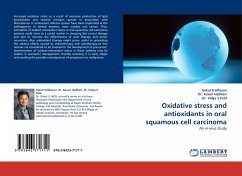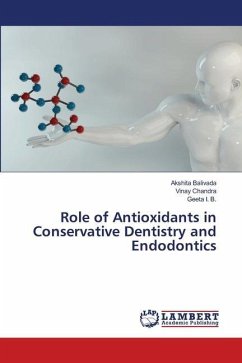A steady increase in the free radicals creates oxidative stress which is neutralised by the antioxidants. These free radicals are usually known to damage the oral environment as it becomes susceptible because of the mucous membrane which allows swift absorption of the innumerable substances that contribute to oxidative stress. The antioxidant micronutrients are essential for limiting oxidative and tissue damage, and also in prevention of increased cytokine production, which is a result of prolonged activation of the immune response. Antioxidants in the diet such as Vitamin C, Vitamin E, Carotenoids may also be of importance in the prevention of degenerative diseases and upkeep of good oral health. In recent times, the incorporation of antioxidant supplements into toothpastes, mouth rinses /mouthwashes, lozenges, fluoride gels and dentifrices, oral sprays, breath fresheners, and other dental products for the control of gingival and periodontal diseases by dental manufacturers and distributors has become quite common. While we are familiar with antioxidants, such as foods and vitamin supplements that are taken systemically, topical antioxidants may also have an effect on oral cells.
Bitte wählen Sie Ihr Anliegen aus.
Rechnungen
Retourenschein anfordern
Bestellstatus
Storno








